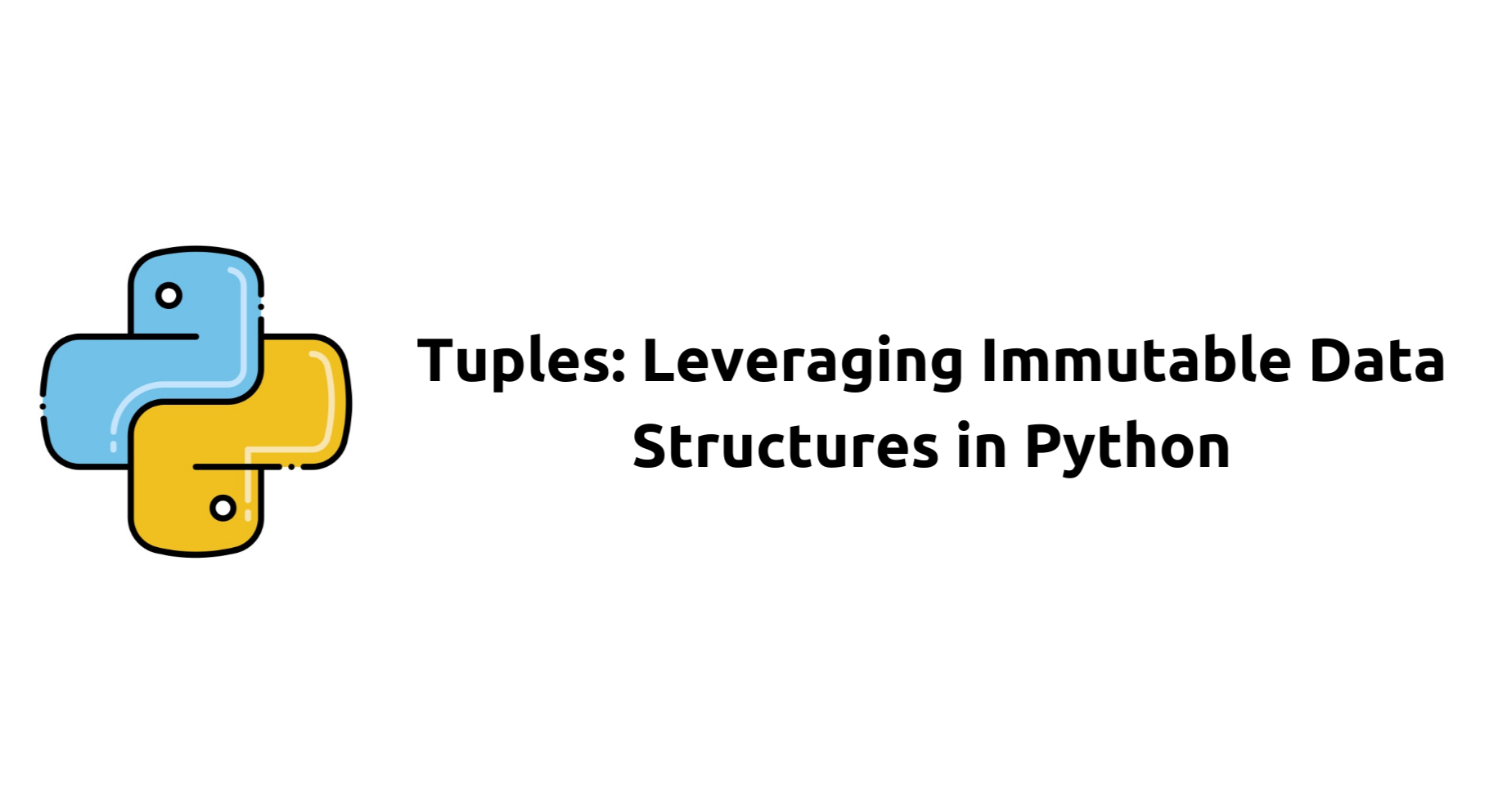Tuples: Leveraging Immutable Data Structures in Python
 Saurabh Adhau
Saurabh AdhauTable of contents

Introduction
In the realm of DevOps automation, efficient data management is paramount for orchestrating infrastructure and streamlining deployment processes. Tuples, as immutable data structures in Python, offer a unique set of advantages for handling structured data. In this comprehensive guide, we'll delve into the world of tuples, exploring their characteristics, practical applications, and use cases tailored to the needs of DevOps engineers.
Understanding Tuples in Python
What is a Tuple? A tuple is an immutable collection of elements, similar to a list but with one key difference: once created, tuples cannot be modified. This immutability makes tuples ideal for storing fixed sets of data that should not change over time.
Creating Tuples: In Python, tuples are defined using parentheses ():
server_tuple = ('server1', 'server2', 'server3')
Accessing Tuple Elements: Tuple elements can be accessed using indexing, just like lists:
first_server = server_tuple[0] # Access the first server name
Advantages of Using Tuples in DevOps
Immutable Data: Tuples provide assurance that the data they store will not change, ensuring data integrity and reliability in automation workflows.
Performance: Due to their immutability, tuples are generally faster to process compared to lists, making them suitable for scenarios where performance is critical.
Security: Since tuples cannot be modified after creation, they offer a level of security against accidental changes to critical data in automation scripts.
Memory Efficiency: Tuples are more memory-efficient than lists, as they require less overhead for storing and managing data.
Limitations of Tuples
While tuples offer several advantages, it's essential to be aware of their limitations. Unlike lists, tuples are immutable, meaning that once created, their elements cannot be modified. Therefore, operations such as appending or removing elements from tuples are not supported.
Practical Use Cases for DevOps
Use Case 1: Storing Configuration Parameters
Tuples are ideal for storing configuration parameters, such as server names and connection details, ensuring that critical settings remain unchanged during automation tasks.
config_tuple = ('username', 'password', 'server1', 22)
Use Case 2: Capturing System Metrics
DevOps scripts can utilize tuples to capture system metrics, such as CPU usage and memory consumption, for monitoring and analysis purposes.
system_metrics = ('CPU', 30, 'Memory', 60)
Use Case 3: Managing Environment Variables
Tuples can store environment variables for different deployment environments, ensuring consistency and reliability across development, staging, and production environments.
env_variables = ('DATABASE_HOST', 'localhost', 'DATABASE_PORT', 3306)
Use Case 4: Recording Deployment Status
DevOps automation scripts can use tuples to record the status of deployment tasks, providing a concise and immutable log of actions performed.
deployment_status = ('server1', 'deployed', 'server2', 'failed')
Conclusion
Tuples offer a valuable addition to the toolkit of DevOps engineers, providing a robust and efficient means of storing immutable data in automation workflows. By leveraging the advantages of tuples—such as immutability, performance, and security—DevOps professionals can enhance the reliability, efficiency, and maintainability of their automation scripts. Through practical use cases and examples tailored to the DevOps perspective, this guide has highlighted the versatility and utility of tuples in DevOps automation. As you continue your journey in DevOps, consider incorporating tuples into your automation workflows to unlock new possibilities and streamline infrastructure management with confidence.
Subscribe to my newsletter
Read articles from Saurabh Adhau directly inside your inbox. Subscribe to the newsletter, and don't miss out.
Written by

Saurabh Adhau
Saurabh Adhau
As a DevOps Engineer, I thrive in the cloud and command a vast arsenal of tools and technologies: ☁️ AWS and Azure Cloud: Where the sky is the limit, I ensure applications soar. 🔨 DevOps Toolbelt: Git, GitHub, GitLab – I master them all for smooth development workflows. 🧱 Infrastructure as Code: Terraform and Ansible sculpt infrastructure like a masterpiece. 🐳 Containerization: With Docker, I package applications for effortless deployment. 🚀 Orchestration: Kubernetes conducts my application symphonies. 🌐 Web Servers: Nginx and Apache, my trusted gatekeepers of the web.